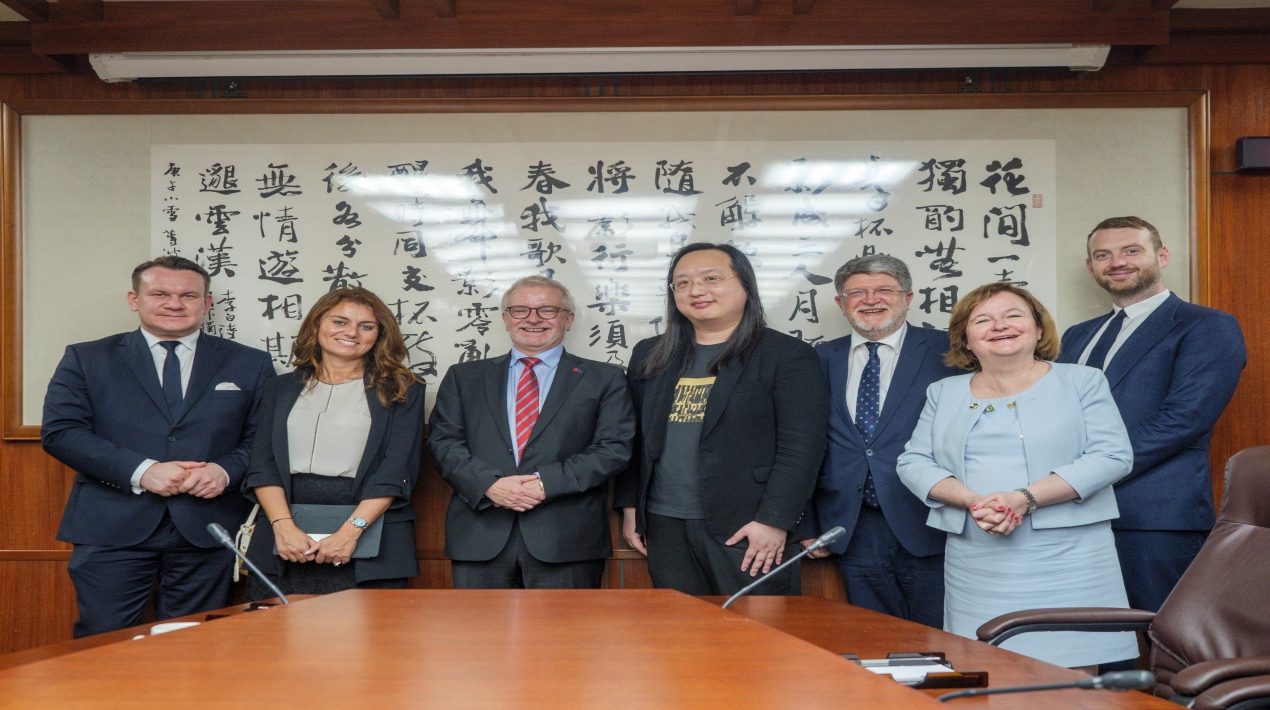
|
Getting your Trinity Audio player ready...
|
Minister Audrey Tang of Taiwan’s Ministry of Digital Affairs (moda) recently had an important meeting with a delegation from the European Parliament’s Foreign Affairs (AFET) Committee. This was a big step towards improving global cybersecurity and digital cooperation. The talks, which focused on important topics like cybersecurity cooperation and digital resiliency, mark the start of a new era of digital cooperation between Taiwan and Europe.
Cybersecurity isn’t just a separate issue for Taiwan; it’s a big part of the country’s overall defence. Based on the idea that “Cybersecurity is national security,” the moda has taken steps to protect itself from digital dangers. The focus has been on stopping possible attacks and making a defence with many layers that are not only strong but also able to change. This joint defence system is made so that it is easy to defend but very hard to break through.
At the meeting, one of the big ideas was the “Enhancing Digital Resilience Verification Project for Communication Networks in Emergency or Wartime Application of Emerging Technologies.” This forward-thinking project wants to see if asynchronous satellite technology can work as a backup network in case of a disaster.
The ambitious goals of the plan include setting up a network of local and international satellite stations to improve important functions like video conferencing, internet phone systems, and live streaming. During emergencies, this network will make sure that important information and orders are sent and received without any problems.
Minister Audrey also talked about how the main website for Moda uses cutting-edge technologies. She focused on the integration of web3 architecture and the Inter Planetary File System (IPFS).
By using decentralised methods, the ministry can stop people from changing websites and keep data safe. Also, moda has taken a lot of steps to protect vital infrastructure, including getting the public and private sectors to work together to fight digital threats as one.
In line with this, moda has set up cross-border combat drills to prepare for situations that could happen in the real world. A key strategic move is for government departments to move quickly to use the “Never Trust, Always Verify” framework. This method puts strict verification at the centre of operations, which will eventually make Taiwan’s defence stronger.
The meeting between Minister Audrey and the AFET Committee group from the European Parliament is a key moment for digital cooperation around the world. By working together to make ties stronger, Taiwan and Europe are standing up to digital dangers and moving the cause of cybersecurity forward.
The work they are doing together has the potential to make both of their digital environments much safer. As both countries combine their resources, knowledge, and new ideas, they will be able to build strong defences against the ever-changing threats in the digital world. This relationship not only makes the current cyber defences stronger but also makes it possible to come up with new ways to stop new cyber threats.
By putting their skills together, Taiwan and Europe are improving their ability to find cyberattacks, stop them, and recover from them. The sharing of ideas and best practices not only helps them learn more about online vulnerabilities but also gives them a place to work together to solve problems. This interaction makes it easier to make security frameworks that cover a wide range of digital operations, from protecting key infrastructure to keeping personal data private.
















